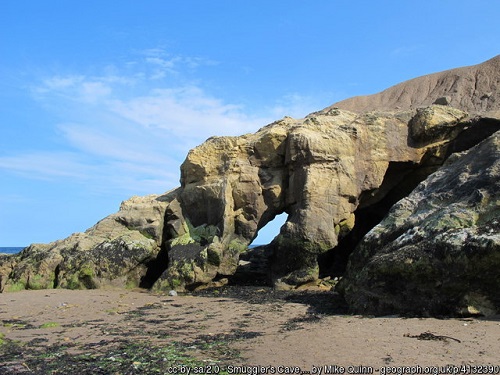Sarah Day has a confession to make...
Day, S., No stupid questions. Geoscientist 30 (10), 5, 2020
https://doi.org/doi: 10.1144/geosci2020-108, Download the pdf here
 It’s time to ‘fess up. In this, my final solo produced issue of Geoscientist magazine, I’m coming clean: I’m not actually a proper geologist.
It’s time to ‘fess up. In this, my final solo produced issue of Geoscientist magazine, I’m coming clean: I’m not actually a proper geologist.
Yes, there were a few geology modules included in my extremely eccentric modular science degree (thank you, Durham University). There was even some fieldwork; a few hours on a soggy beach in Tynemouth during which my lack of appropriate field gear was mocked. But certainly nothing resembling a specialism. I have been hiding in plain sight: a science writer with a penchant for dinosaurs and an ability to conceal my lack of knowledge behind a conviction that there’s no such thing as a stupid question.
By design, I never specialized in anything. (My crowning achievement was infiltrating a third year archeology module called ‘Roman Imperialism’ and discovering three days in that everyone else was in their final year of an entire degree called ‘Roman Imperialism.’) A career in communicating geology came along by chance – the right job at the right time - and thank goodness it did.
To say that I stood a better chance of getting by as a science communicator without specialist knowledge in geology rather than, say, physics or chemistry, is not to denigrate the subject. It’s the opposite. Geology has a way of capturing the imagination, whatever level of detailed understanding you reach. Children collect pebbles, climbers take in the view and wonder what’s under their feet, amateur fossil hunters make the news, and people of all ages pick up interesting looking rocks and wonder, could this be from space, or from the deep past? Geology is not just the most scenic and narratively satisfying of sciences – it’s the most welcoming.
This month’s main feature is a perfect illustration – a compelling story of tectonic plates and time which asks questions about the most fundamental aspects of how our planet works. I may never be able to fully understand the detail of how the models work, or be able to come up with my own, but I can visualize moving plates and rising plumes, and feel I understand, at least in part, which questions have been answered and which remain. I hope you enjoy reading it as much as I have.
From next month, normal service will resume as Amy Whitchurch returns from maternity leave. A big thank you to everyone who’s helped me keep Geoscientist magazine going in her absence; from writing articles to getting in touch to share your thoughts about your Fellowship magazine.
Getting by as a non specialist only works with the patience and expertise of specialists. Over the past twelve years I’ve quizzed many; from palaeontologists to oil industry experts, engineering geologists to climatologists, all of whom have responded with generosity as I’ve tested the ‘no stupid questions’ theory to its limits. I’ve learned a little bit about a lot of things, but most of all I’ve learned about geologists themselves, and I can confidently say I’ve yet to meet an unenthusiastic one.
Most recently, I’ve relied on the expertise and generosity of Geoscientist’s Editorial Panel and particularly its Chief Editors, to whom I’m extremely grateful. I owe a lot of thanks to this magazine, and to its editors past and present, for helping me to navigate my adopted subject, and to have had such a good time doing it. Any lingering errors, as they say, are all my own.
Sarah Day, FGS, Editor
@geowriter